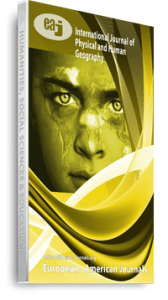The effects of urban population growth on student’s behaviour and attitude to environmental sanitation in selected public secondary schools in the three main urban centres of Anambra State, Nigeria were assessed in this Study under the following objectives: to identify the effects of urban population growth on student’s behaviour and attitude to environmental sanitation; determine the level of significance of the identified effects in the study area and recommend possible ways of reducing these effects in the study area. Descriptive survey research design was adopted with the use of questionnaire. Four hundred (400) copies of the questionnaire were administered using the stratified random sampling technique and three hundred and eighty-one (381) were returned. It was found that the effects of population growth on students’ behaviour and attitude to environmental sanitation include: high level of social insecurity with increase in cultism and theft amongst the students; increase in indecent dressing and sexual immorality amongst the students; increase in ingestion of alcohol, smoking of cigarettes and hard drugs as well as general drug abuse; very poor compliance to sanitation rules; indiscriminate dumping of wastes; among others. The test of hypothesis showed that there is significant effect of population growth on students’ behaviour and attitude to environmental sanitation. The study then recommended as follows: authorities should set strict sanctions against student lawbreakers and staff alike; appreciation to be shown to students who are worthy not only in academic performance but also in character, cleanliness and obedience; forming environmental sanitation clubs for students will go a long way to enhance positive attitude of students to environmental sanitation; paying teachers for excess work load will motivate them to commit more time in attending to the students even when the students are much.
Keywords: assessment of effects, environmental sanitation, student's behaviour, urban population growth

